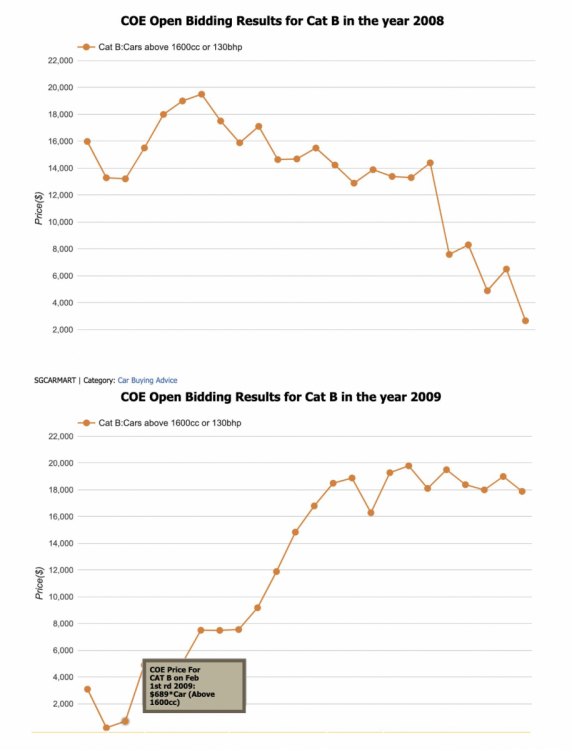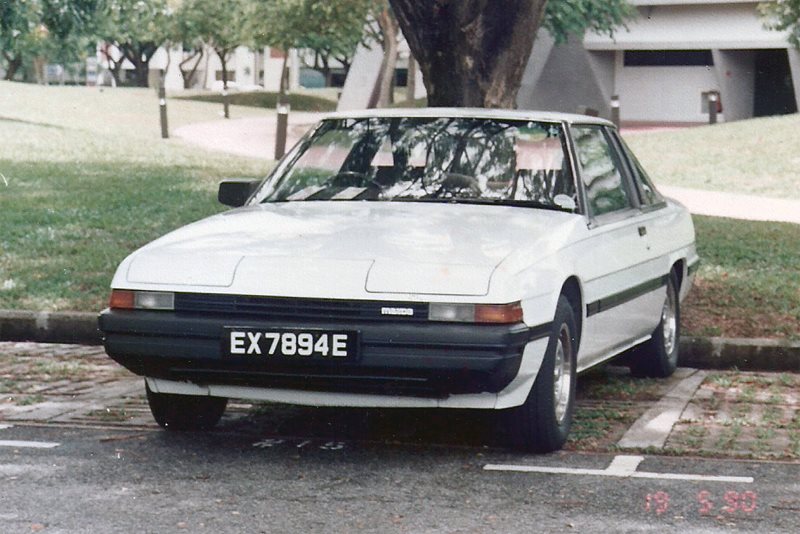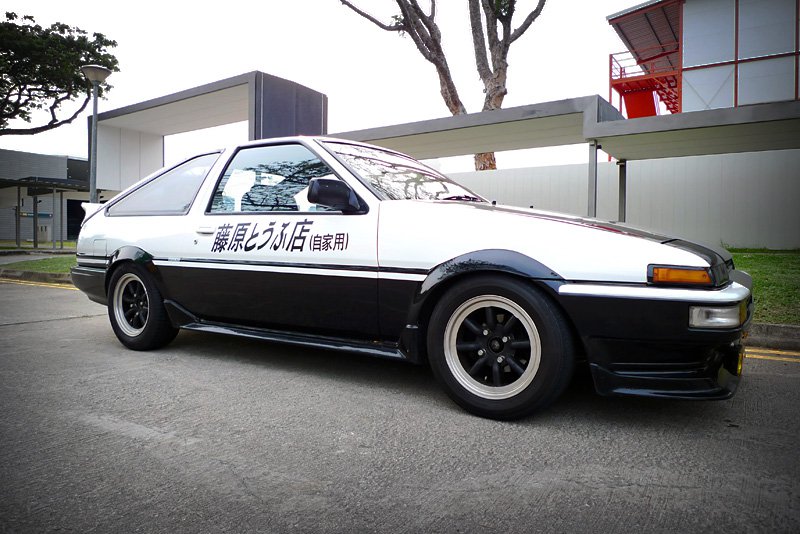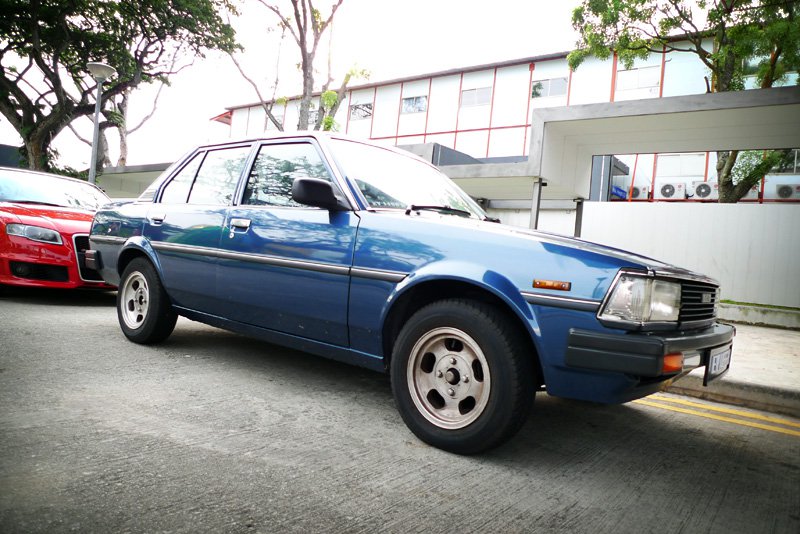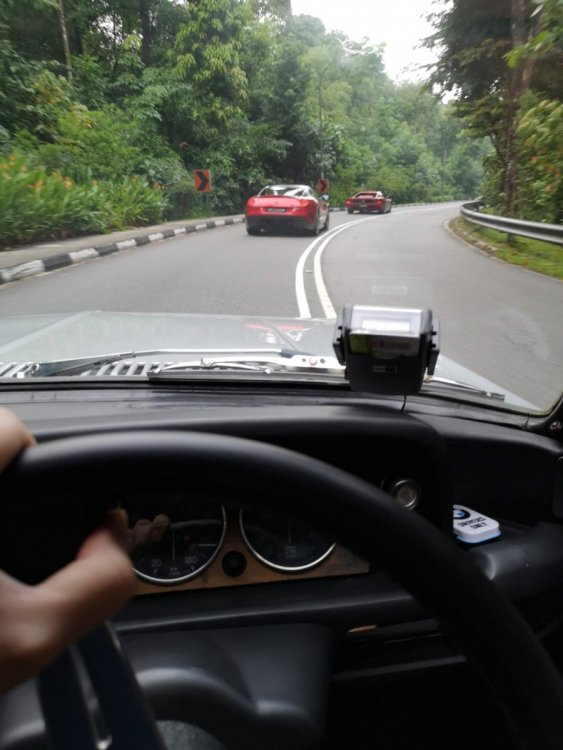Search the Community
Showing results for tags 'gen z'.
-
https://www.channelnewsasia.com/singapore/millennials-gen-z-work-younger-companies-big-read-2846841 The attitudes of millennial and Gen Z workers towards work have emerged as a perennial sticking point among employers, with some saying that the younger generation is not motivated to work hard and is too "choosy". SINGAPORE: Since about a year ago, as the economy started to bounce back with the loosening of COVID-19 restrictions, business owner Adam Piperdy has noticed a change in attitudes among younger job interviewees at his firm. “Right now, it is kind of the employee interviewing the employer,” said Mr Piperdy, the founder of events company Unearthed Productions, referring to the youngsters’ tendency to question what the company can offer them, instead of the other way round. Mr Piperdy believes that the pandemic - which gave young and old plenty of time to reflect on careers, relationships, health and other life issues amid intermittent lockdowns - has changed the “idea of work”, with younger workers having a more “aspirational” outlook. “The idea of a fixed contract, a fixed nine-to-six job, it really doesn’t exist anymore. People want to have a lot more freedom … that kind of flexibility to work anywhere, when they want,” he added. For instance, many of his new employees stated in their job interviews that they wanted to do freelance work during weekends, something that was “unheard” of until recently. “Five, six years ago, if somebody came to you to say, ‘Hey boss, I want to take (time) off to do some side projects’, you of course will say no and say that your work comes first, your clients come first. But (today), that would turn away a lot of these talents," he said. “That has forced us to rethink the entire landscape and how can we bridge this gap of them wanting to aspire something for themselves and at the same time, try to meet our business goals." Echoing some of Mr Piperdy’s sentiments was business owner Delane Lim, who noticed that young job seekers have become more “choosy” when deciding on which offers to accept. Mr Lim, co-founder of FutuReady Asia, a social enterprise focusing on youth and leadership development, noted that in particular, many small- and medium-size enterprises (SMEs) have been struggling to hire young talents. “Some (SMEs) have said that (some) young people are a bit more entitled, they expect a higher salary but they expect a balanced job in the sense of working hours," he said. “If you are good as an employee, then I think employers will be able to accept and find a way to repay you. But if they have not been proven on the ground that they can (deliver) without supervision, then I think having that demand is too early.” However, Mr Lim stressed that not all young people are like this. “There are still a significant number of youths who will still work hard, who want to learn, and are realistic about their expectations.” Indeed, the attitudes of millennial and Gen Z workers have emerged as an employer’s bugbear in recent years, with words such as “entitled”, “picky” and “watch-the-clock” being bandied around to describe the younger generation's approach to work. And the pandemic appears to have encouraged such attitudes even further. Some bosses have even taken to social media to voice out their concerns. American think tank Pew Research Center defines millennials as those born between 1981 and 1996, and Gen Zers as those born from 1997 onwards. Earlier this month, public relations firm founder Tjin Lee received flak for stating in a social media post that it is increasingly hard to find motivated young people to work. She also noted in the post, among other things, that potential hires in their 20s had asked about “work-life balance” and “flexi-working options” as their first questions during their job interviews, and that there is a “worrying” trend of people expressing on social media that they would “rather be on holiday than in the office”. Speaking to TODAY, Ms Lee later said she has learnt to "see both sides" of the issue and was glad to have sparked a conversation about work ethics. She also felt that her post had been "greatly misunderstood" to mean that she was promoting hard work at the expense of work-life balance, though she said she could have been clearer about her intentions and meaning behind the post. This is not the first time a business owner has been lambasted online for his or her comments on young people’s work ethic. In 2020, Mr Lim himself posted on Facebook about how several young graduates that he had interviewed for a job did not seem “hungry” for the role. Like Ms Lee, Mr Lim also noticed back then that applicants had made a range of requests - including not wishing to work on weekends, asking for transport allowances and a team of junior co-workers to assist in tasks as well as more annual leave and higher salaries. Human resource experts and sociologists told TODAY that the apparent negative impressions that some employers may have of younger workers can be explained by the different circumstances that the millennials and Gen Zers grew up in. Mr Adrian Choo, founder of career consulting company Career Agility International, said that older generations were more focused on the rat race and getting ahead in their careers, during a time when Singapore was less affluent. “The younger generation, a lot of them are still living with their parents … so their immediate priorities may not be about getting married and starting a family, they are focused more on self-actualisation,” he said. This “self-actualisation” involves learning new skills and gaining new experiences as opposed to being preoccupied with climbing the corporate ladder, for instance. TODAY also previously found that the pandemic caused younger workers to reshuffle their priorities, with some seeing the turbulent times as an opportunity to pursue their passions. Negative labels aside, some experts pointed out that it is not often easy for young people to make sense of what they are doing, or feel motivated, when they are faced with the current state of the world, with its litany of woes ranging from health crises, armed conflicts to severe heatwaves. National University of Singapore (NUS) sociologist Tan Ern Ser said: “(Young people) desire to do well in their career or business and live the Singapore Dream. However, the path ahead they confront isn’t always easy: High cost of living, income and employment insecurity, stiff competition at work, and, in some cases, being part of the sandwiched generation." He added: “These may combine to produce disillusionment and, in some cases, a lack of motivation.” So, what do younger people in Singapore feel about work and more specifically, traditionally celebrated values at the workplace - such as hard work and loyalty - that may or may not require a rethink? And where, in the grand scheme of things, does work fit into their lives today? TODAY interviewed youths aged between 23 and 35 to find out. WORK HARD? NAH, WE RATHER WORK SMART While claims that the younger generation eschews hard work may not be totally baseless, those interviewed also said that youngsters may not feel motivated to work hard due to good reason. They also do not believe working hard in itself is the key to doing well at work. The idea of hard work has changed for the younger generation, said Mr Isaac Neo, who works in the security risk industry, where he monitors risks facing his clients when they travel overseas. “We grew up in more comfortable times … Our nature of work is very different and we deal mostly with technology, where so-called ‘hard work’ is less visible,” said the 28-year-old. “In the past, hard work meant that you put in the hours to churn out output, and if you stayed in the office for long hours, it meant you were working hard, but that’s not the case anymore.” Mr Neo said that it is up to companies to adapt to these new definitions of "hard work", something he feels that his company has done well. “I’ve been lucky to have bosses who just leave me alone to complete the work, and as long as it’s done, they don’t really care if you’re in the office or how many hours you clock a day,” he said. “And I think that should be the way that hard work is viewed - not about the amount of hours you put in, but how good the final product is.” Some younger workers also said that they often feel exasperated when there are no clear rewards for their hard work. One 32-year-old employee, who works in the corporate secretarial services industry, felt that among her peers, there is a consensus that their hard work is not often appreciated. “We still value hard work, but it’s just that a lot of the time we don’t feel like there’s reciprocation,” said the woman who wanted to be known only as Ms Kuan. “The way the older generation perceived hard work, they don’t really do the kind of obvious rewarding that the younger generation expects." Associate Professor Kang Soon-Hock, the vice dean and head of the Behavioural Science Core at the Singapore University of Social Sciences (SUSS), said that younger workers are not necessarily averse to hard work, but its definition for them may differ from their seniors. “This cohort is more accustomed to using technology to multitask as well as to shorten work processes that may traditionally have taken more time to complete,” said Assoc Prof Kang. “However, their actions may not be viewed positively if it goes against the existing norms or practices at their workplaces and in the process, they may be perceived to be more inclined to take shortcuts or have short attention spans.” Agreeing, Mr Piperdy from Unearthed Productions said that the traditional idea of hard work as staying more hours in the office is no longer as applicable in today’s world, where there are many “productivity applications” such as work chatting application Slack and work management software Asana that have made work more efficient. “Honestly, if an (employee) works for 10 hours but produces only two hours’ worth of good work, it doesn’t matter because it’s only two hours’ worth of work,” he said. YOU WANT LOYALTY? SHOW US THE TANGIBLE RETURNS Loyalty to a company is a two-way street and has to be earned by the company in tangible ways - such as offering employees a clear career progression or increased remuneration in the short to medium term, say the younger workers interviewed. Mr Neo, who has been with his security company for almost two years, said that he is happy there as his bosses allowed him to change roles when he felt that he was “stagnating”. He started working in 2020 as a security specialist, which involved working 12-hour shifts, often at irregular hours. While he didn’t mind slogging it out at the start, he told his bosses that he would want to eventually switch to more regular working hours, as the previous arrangement was not the best for his health and social life. “They were very flexible, they allowed me to go into a new role, and in fact they encouraged it,” he said. A new employee at a local bank, who wanted to be known only as Ms Wong, said that like many other young workers, she is in pursuit of a “growth” mindset and will not hesitate to leave her company if better opportunities arise elsewhere. The 23-year-old, who is a month into her first job since graduation, said that a company that she joins could “easily fire" her, so she should think twice about being loyal to it. “If the company is treating me well and I feel like I can grow from it, I will probably be loyal to the company. But if I find that there is another opportunity out there that can make me grow even more … loyalty is out of the window,” she said. Her view resonated with Ms Kuan, who said that in general, a job should be perceived for the objective benefits that a person can get out of it - such as long-term promotion prospects and fair remuneration. “(Loyalty) has to have substance … It cannot just be touchy-feely words such as ‘we are family, friends’ - none of those, I don’t think the younger generation will buy into that,” said Ms Kuan. Employers, too, agreed that the definition of loyalty has less of an emotive meaning these days, where tangible returns to the employee have to be more readily considered. Mr Jimmy Lim, an inventory logistics manager at a data company, leads a team of 10 employees with up to a third of them being millennials at any one time. He said that these younger workers have fewer financial commitments since they are less likely to have children or large loans to pay off. “It could be very reasonable for someone to just throw in their (resignation) letter and say that 'enough is enough',” he said. While firms can bow to the pressure and promote these workers or raise their salaries in a bid to keep them happy, some employers felt that it may not be a good long-term solution when it comes to retaining them in their respective industries - especially those such as law and engineering, where attrition rates are high. “We can adhere and listen and agree to their demands, but it can only take them so far,” said Mr Lim. “At the end of the day, if they don’t have a good footing in their career, there is a good chance that they may just (quit or be retrenched by their company)." WORK-LIFE BALANCE IS NOT JUST ABOUT ENTITLEMENT Most young workers whom TODAY spoke to prioritised a healthy work-life balance and many said that they would raise this during their job interviews. Ms Wong, the bank employee, said that from the very beginning of her working life, she decided that she wanted to actively pursue her passions outside of work. “I am going to be spending about 40 hours a week on this job, so I want to have time to do other things like travel, experience new things … I would really value a company that can give me a good work-life balance,” she added. However, she would not mind working longer hours should she enjoy her job, or if it is of meaning to her. Indeed, some young workers are willing to put work-life balance aside to pursue causes that they strongly believe in. Ms Esther David, 26, said that she started her own tuition business three years ago because she enjoys helping people through teaching. However, to ensure the success of her nascent business, she had to put work-life balance on the back burner. At the start, Ms David would often work from early in the morning until near midnight, to ensure that she was teaching as many students as she could. This was all in the name of making a name for her fledgling business. “No one gave me any guidance, and I felt that I worked very crazy hours," she said. Ms David’s business, still a “one-person show”, is due for an expansion soon as she is looking to hire more tutors. She has about 30 students from secondary schools and junior colleges. She said that her business is now stable due to the hard work she had put in. Still, she would not advise others to follow in her footsteps as it was “not great for mental health”. Some young workers who are fortunate enough to be in jobs that they enjoy said that having a work-life balance is still integral to such enjoyment. One social worker, who wanted to be known only as Mr Yeo, said that he entered the profession about eight years ago because, like Ms David, he enjoyed helping others and felt that social work was the best avenue to do so. The 35-year-old said that while he finds great meaning in his job, he is very clear about the boundaries between his work and his personal time, and tries his best not to engage with the families whom he is tagged to after his working hours. “I’m strict with my boundaries, because you need to understand your role - as a social worker you are not a saviour, but are there to facilitate their growth and progress,” he said. “You’re not there to say, ‘if you’re in trouble at night, I’ll come and save you’.” He believes that this is not an uncaring approach, but rather one that is healthy and will sustain him in this line of work. “I know of workers who … cross a lot of boundaries and instead of thinking analytically, a lot of them are very emotional, and this is very dangerous,” he said. Some employers are beginning to adapt to the changing demands of employees, such as offering more flexible work arrangements. Mr Lim from FutuReady Asia said that he has had to put aside some “cognitive biases” when it comes to setting expectations for working hours and arrangements. For instance, while he used to be opposed to people not reporting to the office pre-pandemic, he now acknowledges that a lot of young workers have a “gig-economy mentality” and would rather be working towards key performance indicators (KPIs) rather than meeting the required working hours. “They want to have KPIs given to them, but they do not want to report to work,” he said. “In the past, this was quite difficult to accept, but it is the norm now, so we have to negotiate (this) arrangement with them.” He added: “If they are more upfront with us on what motivates them, then I think (this arrangement) is fine." Weighing in on the issue, Assoc Prof Kang from SUSS said that questions from young job seekers at interviews about “work-life balance” and “flexi-work options” should not be trivialised or seen as a weakness in the younger generation. “These are important questions … Employers should also be sensitive to the fact that, more often than not, they have a multigenerational workforce and they need to manage both their own expectations and their employees’ to stay ahead of the curve,” he said. Indeed, young employees say that even small gestures from their employers can go a long way in making them feel like the firm is serious about a healthy work-life balance. Ms May Phyu Sin, 30, who holds a marketing and social media role at a fintech firm, said that her firm set the right tone from the beginning of her time there. “I was told on my first day of work that I might see some messages after working hours but I can always reply the next working day and I am not expected to respond immediately," she said. "This goes a long way to show the company cares for their employees." HOW IMPORTANT IS WORK TO THE YOUNGER GENERATION? In the past, one’s life would typically revolve so much around the job that the person’s identity at times ended up being tied to his or her career. But this is less likely the case for younger workers today. Some, such as Mr Yeo the social worker, are eager to keep their work and identity separate. Mr Yeo reiterated that asking questions about work-life balance during job interviews is not about self-entitlement, but because youngsters care about boundaries and about having a life outside work. "It shows that the younger generation doesn’t put their whole self-identity in work, which is a dangerous thing,” he said. “If your whole identity is on work, and if you lose your job, your whole world crumbles.” Nevertheless, some youths recognise work as a big part of their lives and seek at least some meaning from it. Mr Neo, the security services employee, said that his attitude towards work is that it should be fulfilling enough for him to “not mind doing”. “(Work) should be something that you wake up to every day and you don’t feel like it’s a drag,” he said. He added that as he moves on in the next stages of life such as marriage and starting a family, he will look out for jobs that fit into his longer-term plans. At the other end of the spectrum are “older” young workers saddled with responsibilities such as raising children. Unlike their younger counterparts, they are focused on staying in their current jobs, which provide them with financial stability - which is a priority for them. One video producer at a media company, who wanted to be known only as Mr Tan, said that having a five-year-old son meant that the goals for his career have shifted. “As a parent, I think work is like a way to have money to pay the bills and it’s a bonus for me that I like what I’m doing,” said the 34-year-old. When he was younger, Mr Tan said that he had aspirations to become a “bigger name” in the media scene, but then as the years went by, he learnt that he was also content with being recognised by a smaller group of people who work with him. He added that he negotiated for favourable working hours so that he could spend more time with his family, but this also meant that he was committed to working harder within those hours. “Having a child made me respect my work-life balance more,” he said. “Let’s say if I work from nine to five, by five o’clock, I’m out, but from nine to five, I will work as hard as you need me to.” WILL YOUNGER WORKERS GROW OUT OF THEIR CURRENT MINDSET? There is an argument to be made, however, that the younger generations will in time grow out of their current ideals about work, or re-evaluate their priorities at different life stages. Some of the attitudes could also be ephemeral. For example, some experts felt that the clamour for more work-life balance could very well be just a phase brought about by current conditions, with the recovering Singapore economy coinciding with a severe labour shortage in some sectors. Mr Choo from Agility International said that the years of feeling “stifled” by the pandemic, along with the lack of travel and social time with friends, may have led youths to put their wellness and short-term gratification as their immediate priorities. The improved economic situation has also given these young workers more career opportunities, which may have led to their perceived “choosiness” from the employers’ vantage point. “Because of the shortage of talent in the market now, the younger generation has choices, and that’s why they are able to be more in control of their career decisions," he said. However, these conditions currently favourable to employees will not last. And hence, these attitudes, though justified now, may not be sustainable. In addition, just like the older millennials whom TODAY spoke to, the younger workers may soon have to accept that their future responsibilities in life will require them to revisit the issue of work-life balance. “The Gen Zers that have decided to focus now on their non-financial goals will ultimately have to wake up and smell the coffee,” said Mr Choo. “Because of the increasing home prices, increasing cost of living, someday they will have to refocus on building their financial security, and a life of short-term gains may not be sustainable … they may come to regret it down the road.” POTENTIAL RAMIFICATIONS FOR YOUNGER WORKERS, EMPLOYERS AND SINGAPORE If the “choosiness” that embodies the current employees’ market - at least from the employer’s perspective - persists, it could inadvertently dampen the competitiveness of the local workforce, some employers said. Mr Lim, the business owner, said that it is still not clear whether the current attitudes among young workers will “be a new trendsetter for employment in Singapore”. He noted that amid the current labour shortage, it will be no surprise for firms unable to hire local employees to turn to foreign talent - be it bringing them in from other countries or having them work remotely overseas. “For the employees … once they see that jobs are now being taken up by other labour sources like foreign workers or more mature workers willing to take the job, then I think (by then), their options will be quite limited,” he said. Agreeing, Ms Carmen Wee, founder and chief executive officer of HR advisory services firm Carmen Wee & Associates, cautioned that some younger workers could be left behind if they are unable to compete against their peers in Singapore as well as their counterparts from other countries. “If (the younger generation) continues to be average and mediocre, and other people upgrade their skills and have more to offer in their resumes, then obviously they may not be as competitive when they go for job interviews, and promotion prospects will be affected," she said. "There could come a time where there is a recession, and retrenchment is on the way, then they could be on the chopping board.” She added: “These are the inevitable realities if one chooses to not pay attention to one’s career longevity and employability.” However, employers and experts both agree that the younger generation of workers has their own strengths. Ms Geraldine Kor, country managing director of telecommunications firm Telstra's Singapore office, said that what she has seen from the younger workers at her firm is that they are willing to learn new skills as long as it is in their areas of interest. To channel the workers' interests, her firm provides, for example, training opportunities in different fields ranging from coding to business analytics. By doing so, the firm hopes to match young workers to new skillsets that they are passionate about. "The organisation benefits because workers come away more motivated, and also more skillful, and as long as they feel engaged, the company gets the retention ... because once they have the passion, their potential really gets manifested," she said. Agreeing, Ms Wee said that due to access to social media, the younger generation has developed more diverse interests. “There are a lot of global and social issues that they are interested in, because they want to make an impact," she said. She added: "They are the ones who have very firm beliefs around how society should be run, and how society should treat the more marginalised." The challenge ahead is not so much about how to deal with the work attitudes of the younger generation, but how mentors and employers can harness the energy and passion that many of these workers have, she said. “These are good causes and we need the young people to have passion to articulate their point of view,” she said. “Because they are the ones who are going to live on this planet in the coming decades, and they will have to deal with some of these issues. If they have begun to get involved, it is a very good sign.” This story was originally published in TODAY.
- 41 replies
-
- 3
-

-
- millennials
- gen z
- (and 10 more)
-
https://carsnkopi.wordpress.com/2023/05/08/a-rocky-road-ahead-the-tough-realities-for-todays-young-car-enthusiasts-in-singapore/ It wasn’t easy being an automotive fan when I was a young, overweight boy growing up in neighbourhood schools as my strange obsession with machines so out of reach naturally led to constant ridicule from my peers. Yet, I think I was lucky. Lucky because I spent my primary and secondary schooling days in the glorious 80s and 90s. Which meant that after wasting no time joining the workforce after the army (and through sheer effort, perseverance, plenty of luck and a small loan from my amazing girlfriend), I was smack right in the middle of 2008 and 2009 when the sums added up to allow me to buy my very own set of wheels. Now, if you’ve been paying attention. The years 2008 and 2009 are rather significant. Because for us car-owning, car-loving geeks in Singapore, those were the glory days when COEs dropped to levels so low, rumours were going on about how the Government might even consider scrapping the entire system altogether. Alas, as we now know, that never came to pass. Quite the opposite in fact. Today, our Transport Minister S. Iswaran told Parliament that as a one-off exercise, the Land Transport Authority (LTA) “will bring forward and redistribute the supply from five-year COEs due to expire in the next projected supply peak”. Essentially increasing the supply of certificates of entitlement (COEs) by 24 per cent for smaller, less powerful cars (Category A) and 15 per cent for bigger, more powerful cars (Category B) for the current three-month quota period until July. While it might seem like a sign of relief to the general public, those of us with a tad more vested interest in the matter will understand that such a measure will only serve to sully any chances of a steep increase in COEs quotas in the near future and as such, all hopes of a significant drop in COE prices. It seems to us that the powers that be are happy with COE levels hovering where they are now and have no interest in curtailing what had led to such a dramatic rise. If you are a young enthusiast in Singapore dreaming of one day owning a fun new performance car, I feel for you. Add to that, massive increases in taxes for what many consider their dream cars now mean that even when used, those dreams will no longer be attainable for the vast majority. It doesn’t stop there, with OMVs for many of these beauties now capped at 60k, it would logically make little sense to deregister them, meaning that the majority of these cars will have their COEs renewed once they hit the 10 year mark, which means even less COEs will return to the pool the next decade, which, you guessed it, will only mean even higher premiums for COEs. If you are a young enthusiast in Singapore dreaming of one day owning a fun used performance car, I feel for you. What about cars that have been registered way before these recent rules were implemented? Well, a quick glance through our local automotive classifieds will be more than enough to show you what happens to the resale market when the price of a base-spec Toyota Altis is now asking for over S$160,000. It’s not all local forces at play here of course, with the advent of social media, the hype surrounding certain makes and models of old performance machines have led to a series of “taxes” laid on. “JDM tax”, “Tofu tax”, “Initial D tax”, “Mighty car mods tax”, they all basically mean the same thing, astronomical prices increases on cars that just a couple of years ago no one would even bother to even look at. It’s not all the internets fault of course, the pivot towards SUVs have also contributed to this calamity as the world suffered from years upon years when automotive manufacturers thumbed their collective noses at enthusiasts who were literally begging for the affordable, attainable fun legends we grew up loving. But nein, it was all for nought. To rub salt into our wounds, Mitsubishi even brought out their new Eclipse as an SUV. Today, Mitsubishi is a shadow of its once glorious self and they really only have themselves to blame. And so, with manufacturers no longer building brand new fun sports cars for a period of time, the market for used fun sports cars naturally (with the help of social media) blew the F up and along with that, dragging up the prices for pretty much everything else with a remote chance of being a “classic”. And in a country where such cars are especially rare, you don’t need to be a genius to know what has happened. Things are starting to change of course, we Toyota leading the charge with their GR Yaris, GR Corolla and Supra, but then, you’d have to contend with their equally charged up brand new prices. If you are a young enthusiast in Singapore dreaming of one day owning a fun classic performance car, I feel for you. So, where do we go from here? It’s a tough one to answer. As covered in the media recently and I’m sure plenty of us have talked about it, we all know who are the ones driving up the prices of COE fast and furiously, and I’m sure we all know (even if some might not want to admit it) why nothing is being done or even mentioned about curtailing these car-sharing companies and other PHV registered vehicles. As mentioned once again by our transport minister, “we must expect the long-term trajectory for COE prices to be upwards“. In short, don’t expect COEs to ever come down, and don’t expect the current Goverment to ever be kind to your car-loving dreams. With so many obstacles now neatly in place, It is going to be a painful, rocky road ahead for all car-lovers. And so, if you are a young enthusiast in Singapore, I feel for you and hope that you will also get lucky one day. I’m afraid with the way things are, mine might be running out come December 2026.
- 110 replies
-
- 16
-

-





